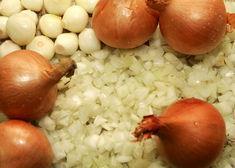
British onion growers have been forced to tackle a “variable” year and questions over the long-term storage of the product are rife.
A cold winter followed by a dry spring and summer have thrown up challenges for growers even before the wet harvest this year.
The long-term storage potential of the product is still unknown for the last 20 per cent harvested, after sitting in waterlogged fields for several weeks prior to the very late harvest.
The early set crop was harvested in near perfect conditions and is among the best the industry has seen for several years. However, stocks of this crop are coming to an end with growers furiously trying to condition the late harvested drilled crop ready for sale.
Throughout the summer, water became a scarce commodity with reservoirs running dry and growers having to make difficult decisions about which crops to irrigate. Coupled with the very cold winter, the drilled crop was always going to be late, but the rain experienced since mid-September has delayed harvest by at least a further four weeks and has recently finished.
Onions harvested before the rains came have been generally smaller than average and of good quality.
Onions harvested since the rain will see higher levels of staining which will come as a large step change from last years near perfect skin finish.
The British Onion Producers’ Association (BOPA) said in a statement: “Following last year… this season’s crop would be better described as variable.
“The situation is, if anything, more difficult on the continent, with weather patterns being similar in all of the major onion producing countries. The Dutch crop in particular with their generally heavier soils will result in very high levels of staining, and secondary breakdown due to the excessive amounts of water.
“It is fair to say that last year’s global shortage caught everyone in the industry out after predictions of a plentiful supply. This year, British Onion’s optimism should err on the side of caution as the weather conditions have overridden any prospect of quality matching that of the previous season, and although there is sufficient crop to meet demand in the immediate and short term, supplies later in the season are predicted to be tight.
“That said, the BOPA is looking ahead to 2011 and investing in a marketing campaign aimed at giving British onions an identity as well as communicating the versatility and health benefits of onions.”
The PR campaign will be run by Phipps PR, a specialist food and drink agency, which has also been tasked with giving website www.onions.org.uk a revamp.



